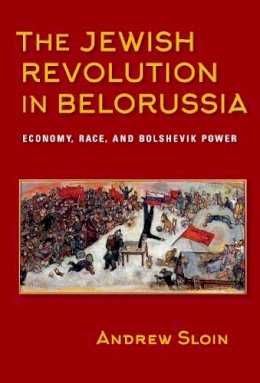
The Jewish Revolution in Belorussia: Economy, Race, and Bolshevik Power
Andrew Sloin
Jewish life was changed fundamentally as Jews joined the Bolshevik movement and populated the front lines of the revolutionary struggle. Andrew Sloin's story follows the arc of Bolshevik history but shows how the broader movement was enacted in factories and workshops, workers' clubs and union meetings, and on the Jewish streets of White Russia. The protagonists here are shoemakers, speculators, glassmakers, peddlers, leatherworkers, needleworkers, soldiers, students, and local party operatives who were swept up, willingly or otherwise, into the Bolshevik project. Sloin stresses the fundamental relationship between economy and identity formation as party officials grappled with the Jewish Question in the wake of the revolution.
Product Details
About Andrew Sloin
Reviews for The Jewish Revolution in Belorussia: Economy, Race, and Bolshevik Power
Journal of Modern History
Much has been written about the promises and pitfalls of Soviet nationality policies and the ways in which the Soviet state managed its multi-ethnic empire. Drawing on a wealth of previously untapped archival materials from Belorussian archives, Sloin's excellent study nonetheless fills a major lacuna. It will stand alongside some of the best scholarship in Soviet Jewish history that has been published in recent years.
Slavonic and East European Review
In all, Sloin's useful, well-written, and well-researched book significantly advances our understanding of Jewish life in 1920s Soviet Belorussia.
Russian Review
Sloin's book is a precious addition to our developing understanding of the particular experience of Jews in the BSSR.
English Historical Review
Sloin's book contributes to our understanding of the role Jewish Communists played within the Belarusian Communist Party in this period, as well as showing how communist ideology and policy from Moscow (not always the same thing) influenced Jewish identity in Belarus.
Kritika
Sloin's book lays exceptionally fruitful ground for further rethinking of the conventional paradigms of Soviet Jewishness and the languages of early Soviet social identities in general.
Soviet and Post-Soviet Review
